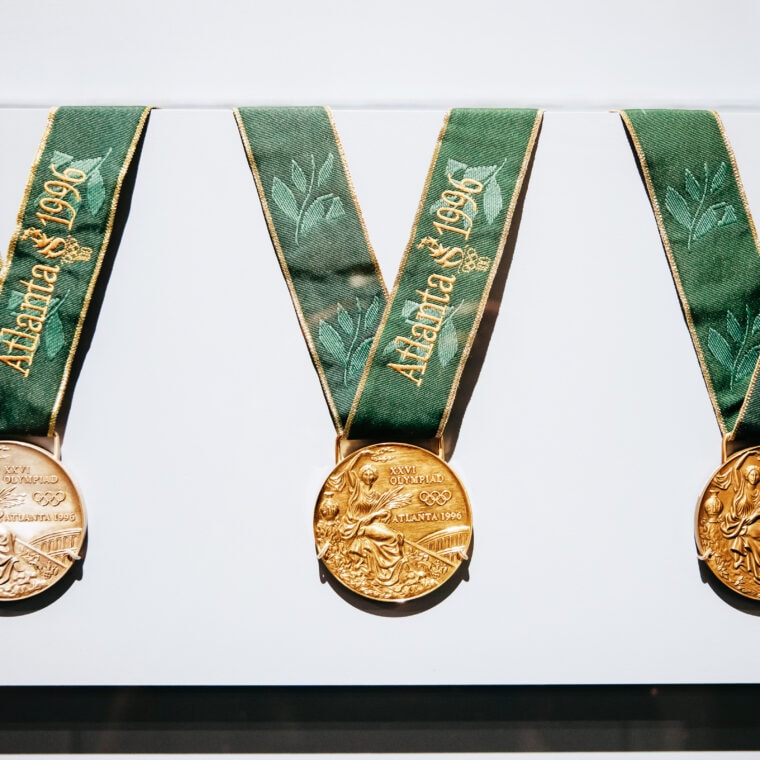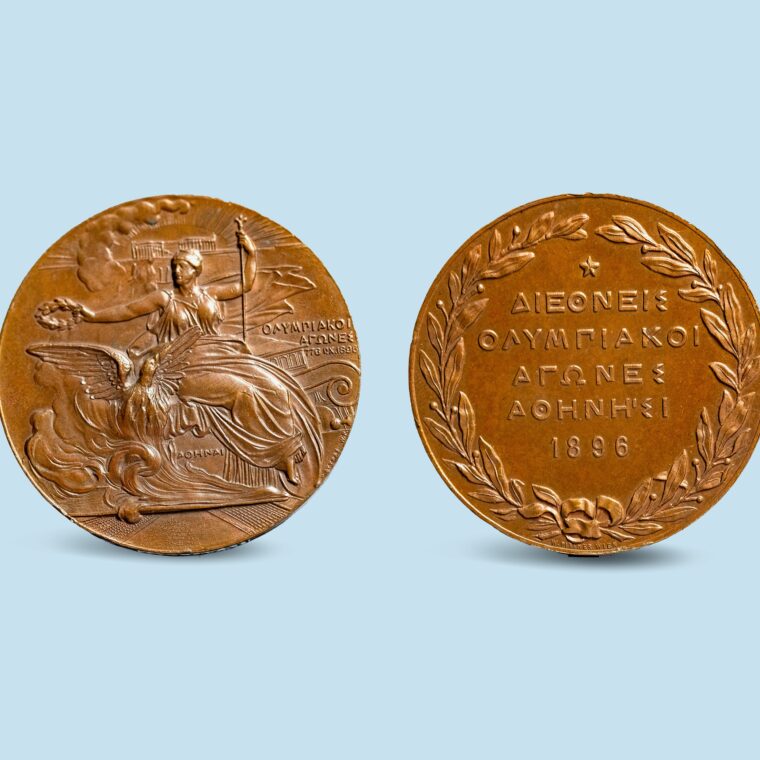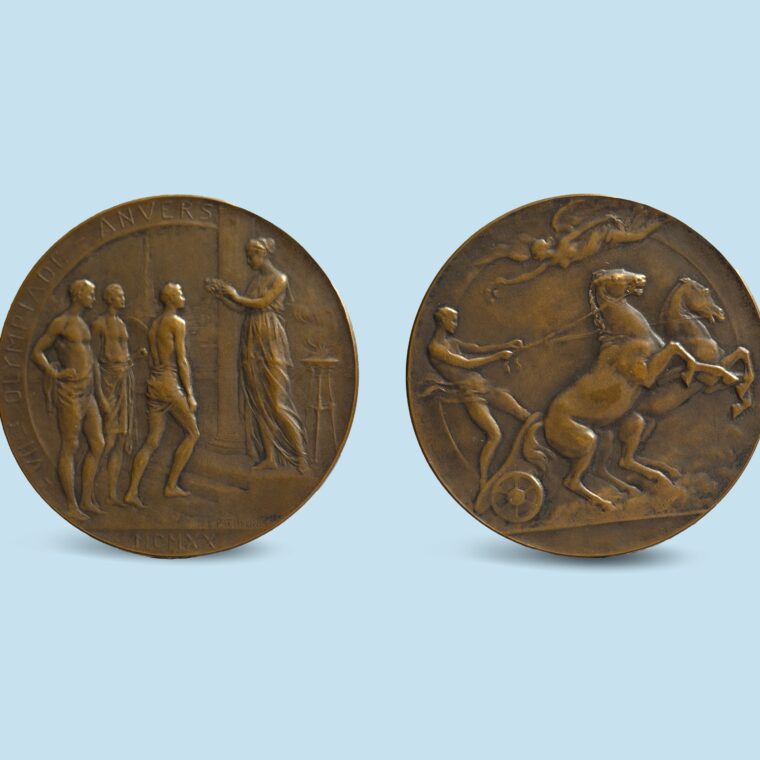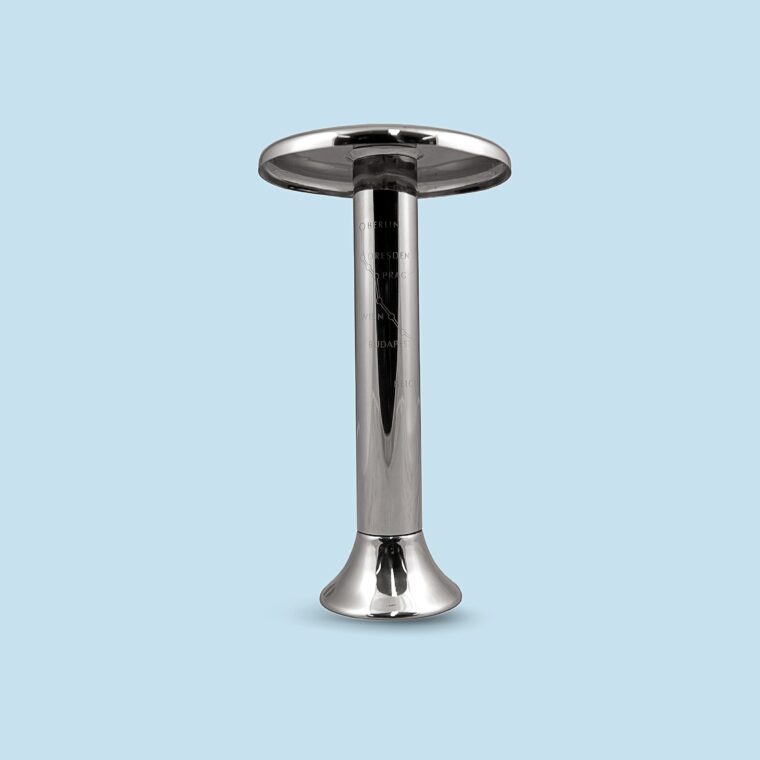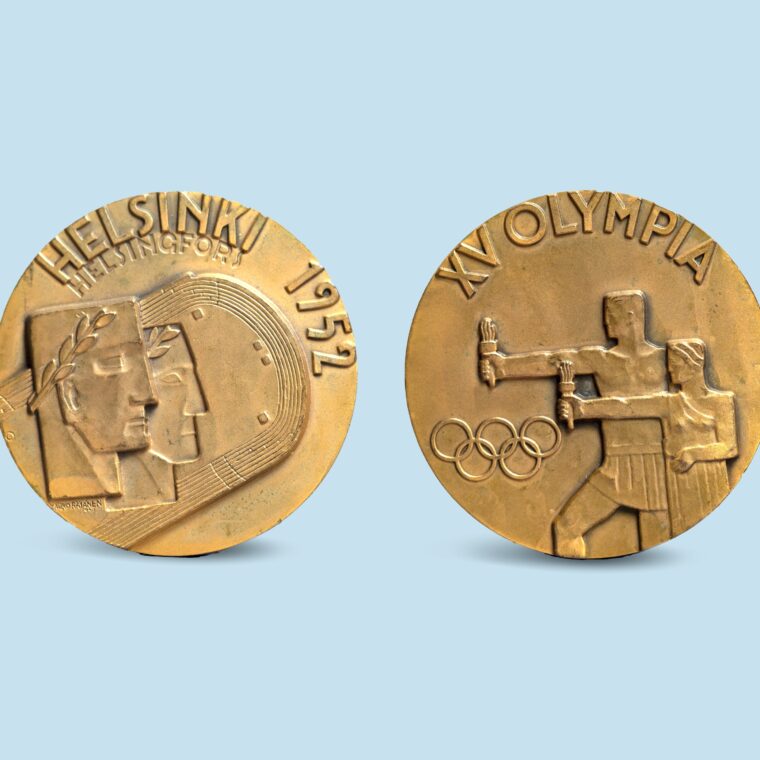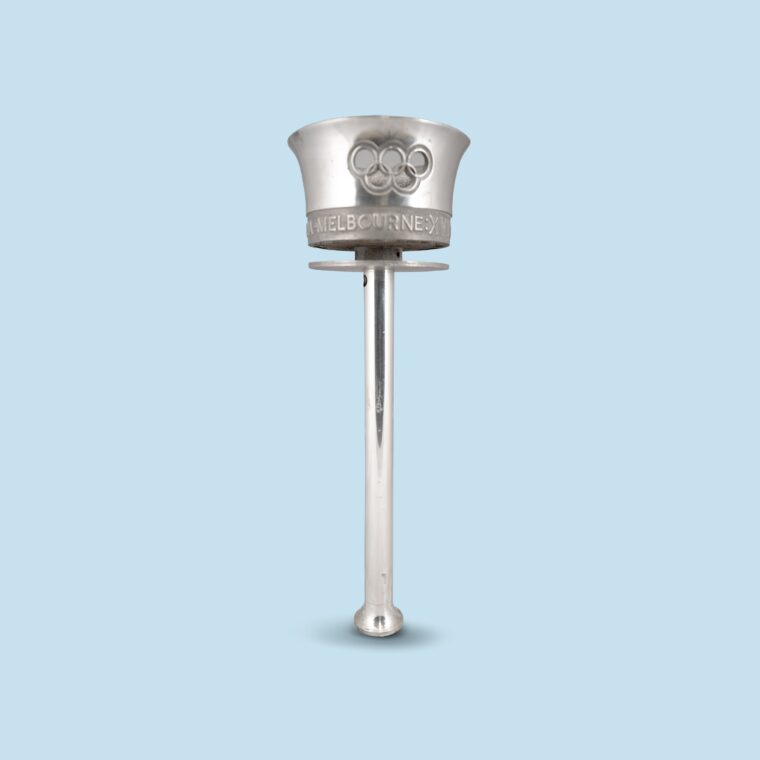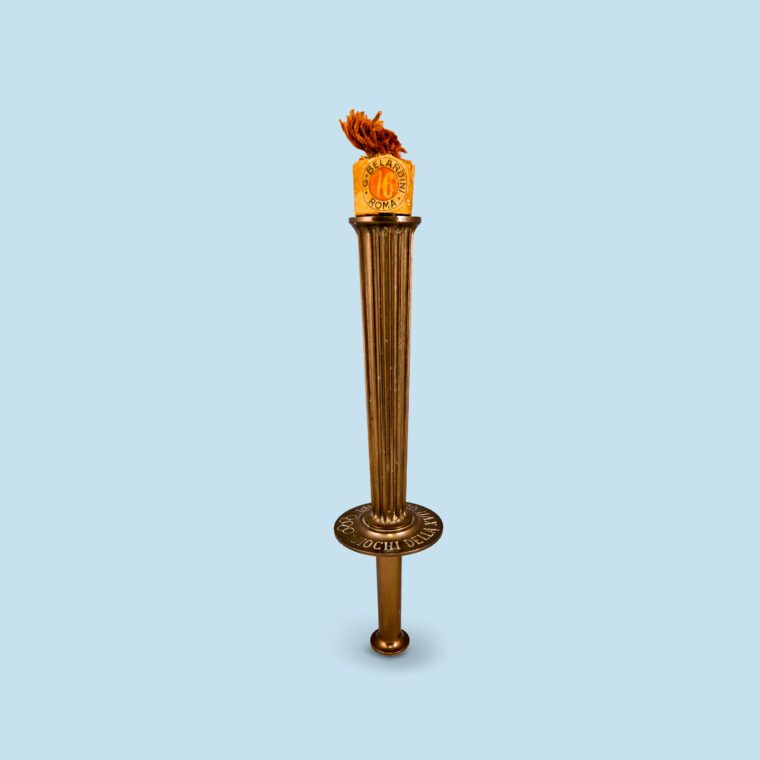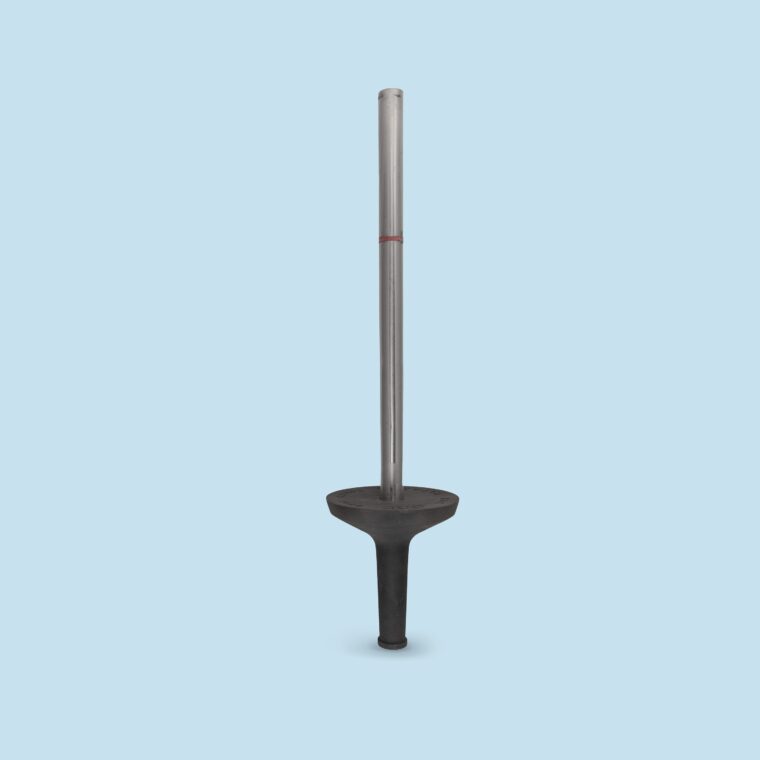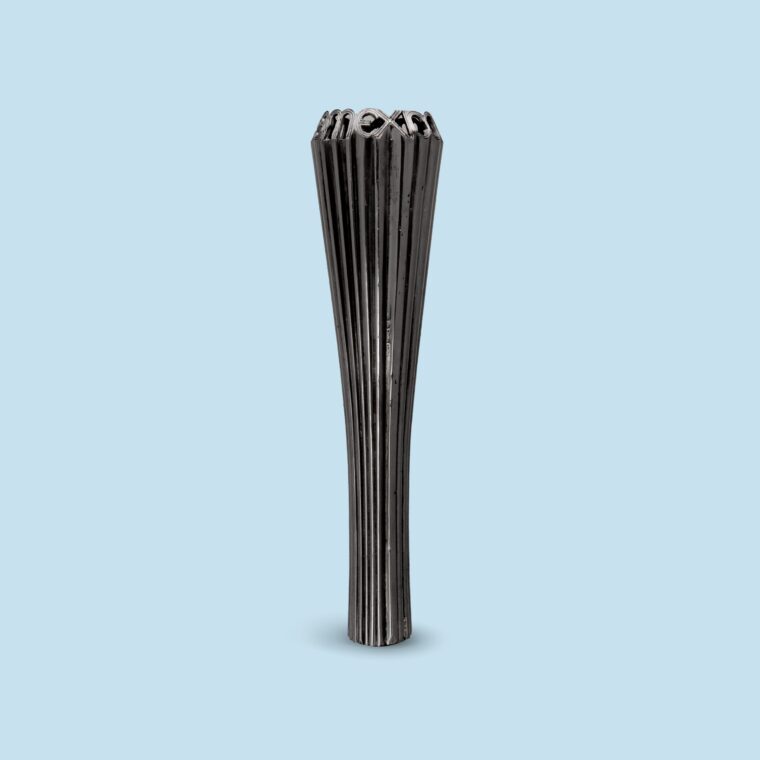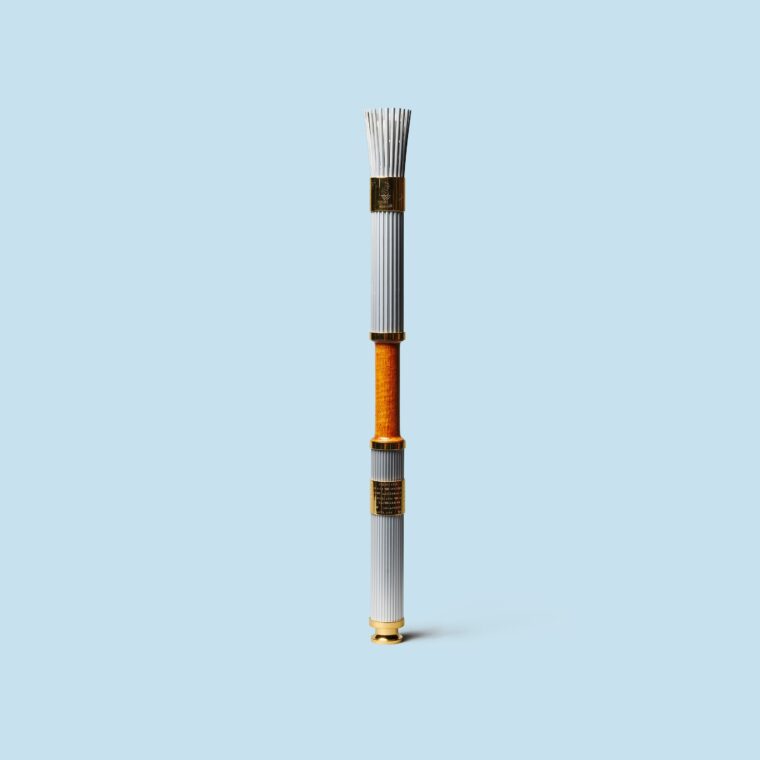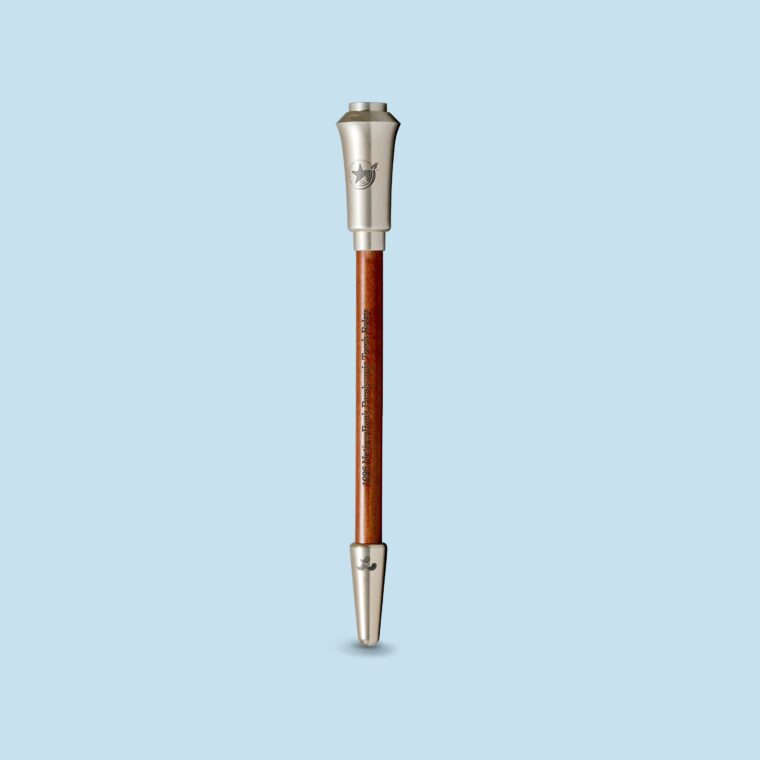1/3 Collections.
After the Games ended, Atlanta History Center was designated as the repository for the collections of the Georgia Amateur Athletic Foundation, the non-profit behind the organizing committee of the 1996 Olympic bid and Games. The collections include professional records, videos, photographs, and objects that document the experience of a host city, from initial plans for the bid through the production of the Games.
In the years since, donations from individuals have expanded Atlanta History Center’s Olympic and Paralympic-related collections to capture personal experiences of the Games, projects happening outside of the purview of the organizing committee, and objects from Olympic history.
During the development of Atlanta ’96, Atlanta History Center turned increased attention to the city’s Paralympic history, adding new items to the collections and building a network of contacts to help tell a fuller story of the 1996 Paralympic Games and related disability history.
Vintage Videos
Georgia Amateur Athletic Foundation collection includes a large archive of videos. Atlanta History Center has digitized a small portion of this collection, which still exists in legacy magnetic tape formats such as Betamax and VHS.
Commemoration of Atlanta’s Selection as 1996 Olympic Host City
Atlanta: WXIA-TV, circa September 1990
Georgia Amateur Athletic Foundation Collection
Atlanta Committee for the Olympic Games and several Atlanta-area media outlets created videos to document and celebrate the city’s winning bid. These videos feature footage from the International Olympic Committee selection meeting in Tokyo and events from throughout the bid preparation.
World’s Longest Hot Dog Unveiling
Memphis: Sara Lee Meats, circa 1996
Georgia Amateur Athletic Foundation Collection
In partnership with 1996 Olympic sponsor Sara Lee Meats, Atlanta Committee for the Olympic Games staff members organized an event at the Georgia Dome to ceremoniously break the world record for the longest hot dog. They unveiled a 1,996 foot long sausage. Since the team used individual buns for the creation, rather than an equally long, continuous bun, the feat did not make it into the Guinness Book of World Records.
Izzy’s Quest for Olympic Gold
Burbank: Film Roman, circa 1995
Georgia Amateur Athletic Foundation Collection
This animated special ran on network television in advance of the Games. The story gave Izzy, the 1996 Olympic mascot, a network of friends and relatives and provided some backstory to the character. Izzy was a computer-generated character, rather than an animal or human. He received criticism in the press but was popular among children.
Next: 2 Sources & Additional Reading.
Learn more about Atlanta’s Olympic and Paralympic history and the history of the 1990s by digging into some of the sources and readings used to research for the exhibition.

